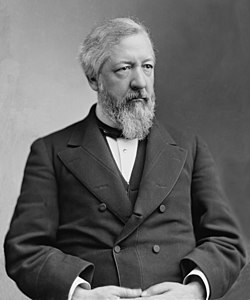House Republican Conference | |
|---|---|
 | |
| Part of | United States House of Representatives |
| House Speaker | Mike Johnson (LA–4) |
| Floor Leader | Steve Scalise (LA–1) |
| Floor Whip | Tom Emmer (MN–6) |
| Chair | Lisa McClain (MI–9) |
| Ideology | Right-wing populism [A] Conservatism |
| Political position | Right-wing |
| Affiliation | Republican Party |
| Colors | Red |
| Seats | 218 / 435 |
| Website | |
| gop | |
^ A: Includes Trumpism | |
| This article is part of a series on the |
| United States House of Representatives |
|---|
 |
| History of the House |
| Members |
| Congressional districts |
| Politics and procedure |
| Places |
The House Republican Conference is the party caucus for Republicans in the United States House of Representatives. It hosts meetings, and is the primary forum for communicating the party's message to members. The conference produces a daily publication of political analysis under the title Legislative Digest .
Contents
- Current hierarchy
- Leaders of the House Republican Conference
- Notes
- Conference chairs
- Vice chairs
- Secretaries
- See also
- References
- External links
When the conference holds the majority of seats, it is usually led by the speaker of the U.S. House of Representatives who is assisted on the floor by the House majority leader and the party's chief whip. When in the minority, it is led by the House minority leader, assisted by the chief whip. The conference has a chair who directs day-to-day operations and who is assisted by an elected vice chair and a secretary.
In the 118th Congress, the conference is led by Speaker Mike Johnson of Louisiana, assisted by Majority Leader Steve Scalise (also of Louisiana), and Majority Whip Tom Emmer. The current chair is Lisa McClain of Michigan, who assumed the position in 2024. [1] [2] Former chairs include Gerald Ford, John Boehner, Mike Pence, John Bayard Anderson, Dick Cheney, Jack Kemp, Liz Cheney, Kevin McCarthy and Elise Stefanik. As a result of the 2024 elections, the party holds a narrow majority in the House of Representatives in the 119th Congress.



























